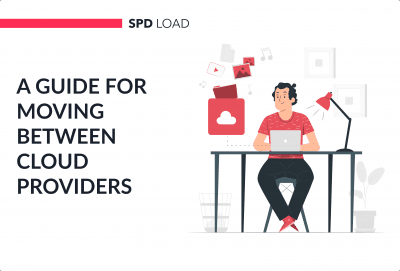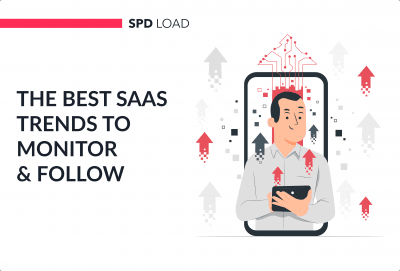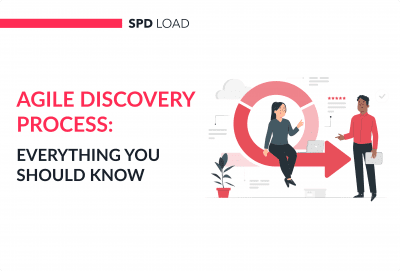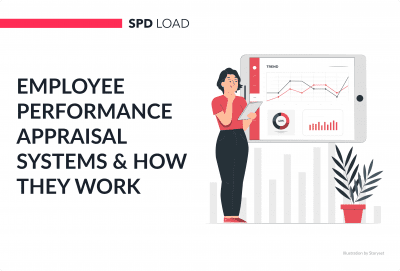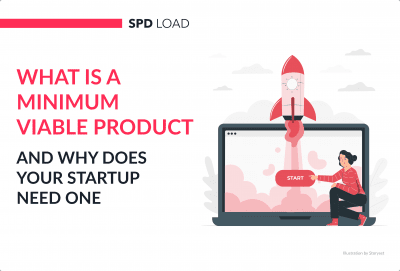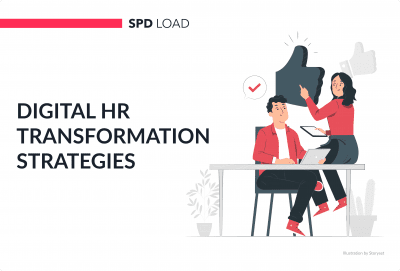How Healthcare Tech is Transforming Hospitals
- Updated: Nov 14, 2024
- 10 min
Technology is rapidly evolving and transforming a wide range of sectors, and one of the areas where technological advancements has a big impact on the healthcare industry.
The sector has been a bit slow in implementing the new technologies and digitalization, such as mobile app building, when compared to other industries, but that is because of the sensitive nature of the medical information and the strict regulations involved in the process.
However, the healthcare industry has made big strides that have redefined how data gets collected, how patients receive treatment, what research is done, and how medical practitioners use new tools and get innovative and fresh techniques to practice medicine.
A recent study by PwC Health Research Institute indicates that only 9% of hospitals used electronic health records [EHRs] ten years ago, compared to 90% today.
Public crowdfunding has also played a significant role in enabling patients with ailments such as cancer that require the use of highly specialized machines to get the right assistance they require to get appropriate medical care. Here are some of the ways technology is improving the healthcare industry.
Planning a crowdfunding platform? Learn what goes into crowdfunding website development.
Transform your ideas into reality with custom software tailored just for your business – contact us today!
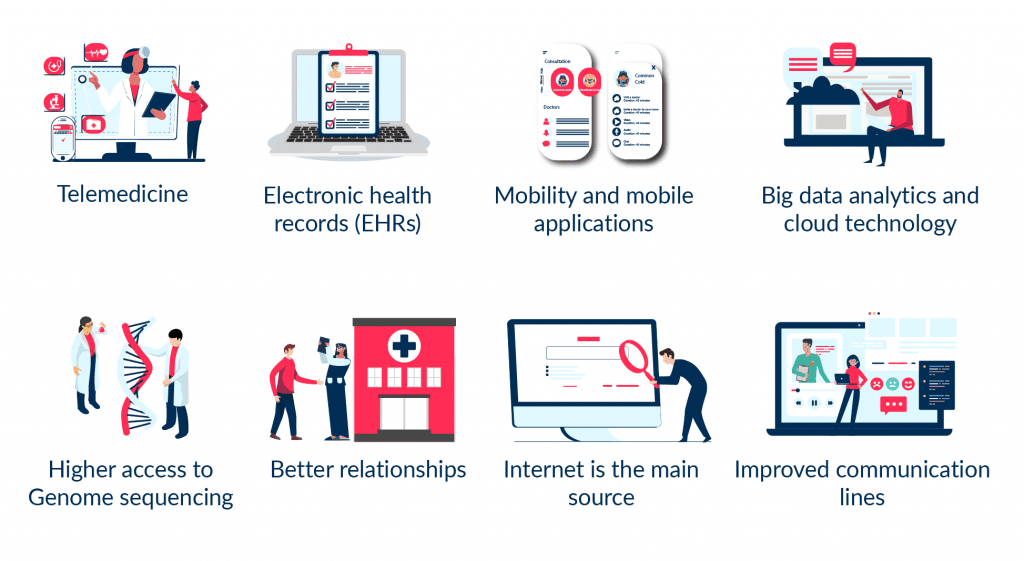
Telemedicine
Telemedicine is a tool used to make healthcare more accessible to patients. Telemedicine services like video-conferencing have become quite cost-effective methods to harmonize the local health services. Patients and physicians can seamlessly share information from one computer screen to another in real-time.
Besides, they can also capture and view readings from medical gadgets from a faraway place. Using telemedicine software applications, patients can see doctors for diagnosis, treatment, and prescriptions at the comfort of their homes without having to wait for appointments.
Generally, you will have a physician, other medical experts, midwives, nurses, and healthcare workers offering face-to-face medical services to patients during a teleconsultation with a specialist to make sure the right procedures are undertaken.
One of the best ways to access this medical care is through some of the best telemedicine apps available on the market. Each of these apps will help you get the medical attention you require, and each of them comes with its strengths and drawbacks. In many cases, some of these apps might even be covered by your medical insurance plan.
Explore the potential of healthcare app ideas to make a meaningful impact in healthcare.
Benefits of Telemedicine
- It improves the quality of healthcare delivery
Telemedicine can boost the quality of healthcare for patients with both mental and physical health conditions.
- It increases access to medical care.
Travel time and distance between healthcare providers and patients can limit access to medical care, especially for people living in regional, rural, and remote areas. Luckily, telemedicine can overcome all geographical barriers to medical care.
- It improves traditional face-to-face medicine.
Telemedicine should support traditional healthcare but not replace it. Telemedicine enables healthcare providers to continue caring for patients through in-person medical care while still offering the convenience and flexibility of seeing the patients remotely for check-ups and follow-up visits when necessary.
- It reduces the costs of healthcare.
Research studies show that telemedicine care can save more than 19% of inpatient care costs. Telemedicine can boost the efficiency of healthcare delivery, reduce the costs of transporting patients to another location or caring for patients, and can also keep a patient out of the hospital.
- It improves provider satisfaction.
Working as a healthcare provider can be stressful and challenging at times. Telemedicine can boost job satisfaction for care providers by making it easy to meet with patients.
- It enhances patient satisfaction and engagement.
Telemedicine makes it more convenient and easier for patients to remain engaged in their medical care and stay healthy. Patients enjoy the flexibility, convenience, and real-time care offered by the care providers.
Discover other healthcare technology trends that are shaping the future of health services.
We are empowering healthcare innovation through custom apps
Electronic Health Records (EHRs)
The introduction of technology in healthcare has become a blessing, especially when it comes to the medical records of patients. In the past, large paper files of patients records were moved from one department to another, and sometimes patient medical charts would get damaged or go missing. Sometimes, it took a long time to locate medical records of patients, especially during emergencies during the weekends or at night.
Referring patients to other doctors or hospitals was also challenging, and doctors had to send a big box containing the patient charts and medical records. However, all that has changed with the EHR software development services. The EHR apps have made life easy for the patients and healthcare providers. Access to electronic health records or EHRs has led to centralized storage of patient data. Discover emerging EHR startups that are setting new standards for digital health records.
Benefits of EHRs
- It provides accurate, complete, and up-to-date information about patients.
- It enables fast access to patient medical records or efficient and coordinated care.
- It supports the secure sharing of information with both patients and other medical practitioners.
- It assists providers in effectively diagnosing patients and providing safer care.
- It improves communication and interaction between the care providers and patients.
- It enhances the patient data security and privacy.
- It helps healthcare providers improve their work-life balance and overall productivity.
- It reduces costs through reduced paperwork.
Explore more benefits of electronic health records and why they’re essential for modern healthcare.
Wondering how to build EHR/EMR software? Our expert guide walks you through the essential process of developing secure health tech solutions.
Mobility and Mobile Applications
Mobile software applications or mobile apps are vital to boosting accessibility for healthcare professionals and their patients. Mobile applications enable individuals to manage their general well-being and health more easily; everything from prompting people to get their medical check-ups, to getting medical information, or securely accessing test results online without a doctor’s appointment or waiting several days for clinical results. Healthcare professionals, on the other hand, can access information related to images for medical issues, diseases, and drugs, and continue their education quickly.
HIPAA-compliant texting apps will provide a secure messaging option that enables healthcare providers to safeguard any electronic protected health information while still maintaining an open flow of communication between authorized users.
And there’s still a place for eFax that is HIPAA-compliant in this context as well, showing that a blend of communication solutions and tech will push the envelope going forward.
Mobile health applications provide increased flexibility to all the parties involved. They are among the most inexpensive methods for medical facilities to offer better services to patients.
Some of the common areas healthcare mobile application development can help with include:
- Medical management
- Management of chronic care
- Personal health records
- Mental health
- Medical reference
- Fitness and weight management (Thinking of creating a fitness app? Here’s a complete guide on how to make a fitness app that stands out)
If you want to create an app with seamless chats to satisfy your users, check out how to create a messaging app step by step.
Partner with SPDLoad to improve how you deliver patient care
Big Data Analytics and Cloud Technology
A lot of data is generated on a routine basis by medical laboratories, hospitals, and medical promotional activities and operations. However, most of this data goes to waste because the respective might not be able to figure out what they can do with the data collected.
That’s where big data and cloud come into play, as well as data recovery software for Mac (obviously ,because of a lot of data storage at the local PC). The big data repositories and analytics tools eliminate the hard thinking and produce calculative and reliable insights within a short time by facilitating the decision-making process.
Learn more about its impact in our guide on healthcare data analytics.
The shift to electronic health records has also necessitated the utilization of storage options that are secure, easy to scale, and cost-effective through cloud computing. Cloud technology delivers services and stores data through the internet using software and hardware. That enables patients and healthcare providers to access specific files and data and use applications from any device connected to the internet. Here is more about what is cloud migration and how to do it right.
Benefits of Big Data and Cloud Technology
- Development of improved or new medical equipment, treatments, and medications
Technology is bringing many benefits in healthcare as time goes by. Big data has led to the invention of better pieces of health equipment that enable the physicians to give more comprehensive care. It has also led to better and improved treatments that boost the quality of life of many individuals suffering from long-term illnesses and terminal diseases.
Technology has also brought about better medicine that has eliminated the fear of many life-threatening diseases of the past. Improved medical equipment has also led to speedy research and effective medical processes.
- Accurate prediction of outbreaks
Because many people look online for answers when they begin feeling sick, the data browsed can add up to develop a bigger picture that is a specific query. Specific locations can be established from all the online searches, and a particular database can be created to show the spread and rise of certain illnesses. This information is important when it comes to predicting outbreaks for their outlook.
- Improved disease control and healthcare
Big data and the development of specific software applications have enabled the WHO or World Health Organization to classify some ailments, all their symptoms, and main causes into an extensive database with more than 15,000 individual codes. The information in the database enables researchers and medical professionals to monitor, retrieve, and utilize essential data to provide better healthcare and control illnesses. Software applications also play a significant role in tracking medical processes and utilizing automated billing that reduces paperwork.
- Reduced risks and recovery time
Technology developments have greatly enhanced the safety of many medical procedures. As a result of technological advancements and big data, many technological innovations, like laser treatments, are currently less risky. The utilization of new technology has significantly reduced the time of recovery. In some instances, the recovery time is reduced from a couple of weeks to a few days.
- Others
The other benefits of big data in healthcare include:
- Reduced healthcare expenses
- Less healthcare waste
- Improved quality of life
- Enhanced efficiency and quality of care
- Higher death prevention
Higher Access to Genome Sequencing
Medical researchers sequenced the first human DNA in 2003. The entire process lasted for 13 years and cost almost 3 billion dollars to complete.
Technology advancements have currently reduced the overall cost to around 1000 dollars. The data found in the genome is more accessible to physicians and patients nowadays.
Better Relationships between Healthcare Practitioners and Patients
Doctors can access the records of a patient through technology, which gives them comprehensive information about a particular patient. That can enable the doctors to offer personalized treatment and medications to patients. In the past, the medical files of patients were kept in halls or stores, which created large amounts of paperwork that made it challenging to find a patient’s file.
However, with technology, you can transcribe the records and put them online, making them available for the patients and doctors. It also boosts the relationship between the patients and the doctors and makes the patients feel more comfortable with their doctors because they know their entire health history.
The Internet Is the Main Source of Healthcare Information
Recent research studies indicate that there has been a higher number of individuals looking for medical information on the internet. Therefore, there is a growing list of individuals who utilize the internet to investigate their medical problems. The web not only makes it easy for users to look up symptoms but also the available medication and treatments.
While it is not a good idea to skip out on your doctor fully, website builders and web design itself have empowered patients when it comes to making health decisions.
Good design can make all the difference. Check out our step-by-step guide on healthcare app design.
Improved Communication Lines
In the past, healthcare workers used beepers to communicate. However, digital technology in healthcare has made communication between patients and healthcare providers very easy. Healthcare professionals can remain in touch with their patients through smartphones, emails, text messaging, and web portals. Physicians do not have to mail out letters to their patients, reminding them of their medical tests and appointments.
Technological advancements have made communication simpler and more cost-effective. Besides, medical professionals can get web builders to develop mobile-responsive websites that allow for easy access to information.
The web portals on the websites allow patients to get access to their past medical records, which enable them to keep track of their appointments, billing, and medical issues.
Healthcare providers can also create videos, webinars, and social media and online platforms to communicate with other medical professionals. Furthermore, teleconferencing has made it easier to communicate well beyond geographic borders.
Conclusion
New technological innovations and developments are leaving a mark on every sector, industry, and trade. While there is value in everything that simplifies medical processes or solves a problem, there are no better applications for breaking technology developments than in the medical sector.
Technological advancements are better implemented in the healthcare sector in some parts of the globe than others. Developed countries have been able to employ technology more effectively for better patient care. However, the developing nations are also catching up fast.
Medical providers who have not yet adopted some of the tools placed at their disposal by technology now realize their massive untapped potential. As a result, they are making the investments and the changes needed to streamline processes, increase efficiency, lower costs, and, most importantly, boost the quality of care.
The eight items discussed above are just a few examples of how technology development paves the way for a better tomorrow, and only time will tell what is next in the healthcare sector.
If you are thinking about developing an EMR, feel free to discover all about EMR systems development and its key components in our guide.




